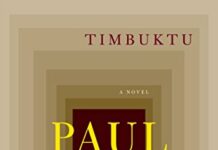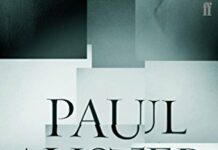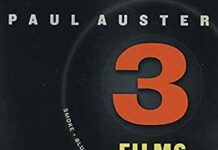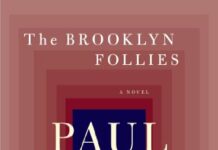
Ebook Info
- Published: 2012
- Number of pages: 240 pages
- Format: EPUB
- File Size: 1.99 MB
- Authors: Paul Auster
Description
Facing his sixty-forth winter, internationally acclaimed novelist Paul Auster decides to write a journal as he sees himself aging in ways he never imagined. Compellingly written, and with dreamlike logic and urgency, the autobiographical fragments and meditations produce an extraordinary mosaic of a life. Weaving together vividly detailed stories, Auster illuminates how each small incident comes to signify a whole. Also, there are two recurring moments: one of bodily terror — his panic attack following his mother’s death in 2002; the other of joy — his experience watching a dance piece in 1978 which releases him from writer’s block just prior to his father’s death. It was his father’s death that began his first equally unconventional and internationally celebrated memoir, The Invention of Solitude, published thirty years ago. Now, Auster has included an unforgettable portrait of his mother. Winter Journal is a surprising and moving meditation on time, the body, the weight of memory, a long and fulfilling marriage (with author Siri Hustvedt), and language itself by one of the most interesting and elegant writers writing today, and one with a devoted following.
User’s Reviews
Editorial Reviews: Review “Surely one of the most interesting writers of our time.” — Montreal Gazette “A literary genius, capable of writing the most complex book possible, yet never losing the reader’s intense interest…” –Deseret Morning News About the Author PAUL AUSTER is the bestselling author of Sunset Park, Invisible, Man in the Dark, The Book of Illusions, and The New York Triology, among many other works. His books have been translated into forty-three languages. He lives in Brooklyn, New York.
Reviews from Amazon users which were colected at the time this book was published on the website:
⭐This is a memoir presented in the way we often remember things – fragments out of sequence, some specific and very detailed events that we regard as significant, lists of things, memories of people and ghosts of others. He is writing in a cold harsh winter in New York, and as he says at 64, in the winter of his life. The recollections are written in the second person, an unusual style in literature, but I’m surprised that more memoirs are not written this way, for in the storytelling in our heads we often talk to ourselves that way: `now where on earth did you put that?’; `you should go over and say hello’; or my regular, `you idiot’.If there is a theme in this book, it is the way we experience the world through our bodies, though ironically through bodies that we can never fully see in the way that other people can. We feel like an integrated physical being, but we can only ever look at bits of ourselves, even in the mirror or a photograph. Three dimensional holograms will be extraordinary for more than just the technology.Auster recalls the physicality of childhood, the hugs and body contact, the bumps and bruises, scars whose causes are both vividly remembered and long forgotten. There are the teenage years of raging hormones and sexual discovery, and early manhood where trying to make sense of relationships often ends in failure and the occasional unwanted infection. There is a confident middle age, but now he feels he is getting old and his body is no longer capable of doing everything it once could, and it is showing signs of wear and tear. He has acquired habits that are not good for his health but he is now too old to change his ways – the vice is just too nice.Food is one of the corporal pleasures and he remembers childhood meals and treats, listing all his favourite things, many now abandoned unless tempted in the boredom of an airport lounge. If you want to know why Americans are the unhealthiest people in the rich world, there are plenty of clues here. In contrast, Christmas dinners with his wife’s family are a simple affair and the menu has never varied over the years. The meals tie the family closer even as the years change the characters and separate them geographically.He is a lover, not a fighter. He has been fascinated by girls from boyhood and is lonely and adrift without women in his life. Sleeping alone he feels bereft and one of the great pleasures of his life, both emotional and physical, has been the constant companionship of his current wife, to whom he has been married for over thirty years. It was love at first meeting and they share much in common. He muses that she is a better version of himself. Throughout his life it has never been the physical attraction of women that arouses him, though he says his wife is beautiful (always wise to insure yourself in print). Rather, it is the `inner spark’ of a woman that beguiles him, something about her character and intellect, the very thing that he sensed when he and his future wife met after a literary seminar, or that surprised him when Sandra, a Parisian prostitute, recited long passages of Baudelaire.One of his favourite ways to engage his body with the world is walking. He walks regularly in his native New York and in cities around the world as he travels. He is out in all sorts of weather, his body exposed to extremes of temperature, to the wind and sun, icy air and brewing storms. He says that walking is integral to his ability to write, an observation that many writers have made, but in the end he has very little to say about this linkage.At a few points in the book he pauses to tell us that he is writing, as winter howls or closes in silently outside. Going over the events of his life he is always scribbling in the background, increasingly making it a daily routine, and after marriage it is in parallel to his wife’s literary work. But how do the often mundane events of his life lead to this feverish obsession with getting words down on paper? There is no clue whatsoever. We get the dull and diurnal, but no idea how they transubstantiate into the occasionally sublime.At one period in his life he is feeling very low and his ability to write seems to have deserted him. He goes to watch a rehearsal by a group of eight dancers. They rehearse without music and each of their pieces is interspersed with the choreographer explaining what she is trying to do. The explanations confuse and bore him, but each time the dancers move he is spellbound. There is something about their movements that inspires him, gives him a sense of freedom and possibility. It is a turning point in his life, after which he is able to return to productive writing. But what was it about those dancers and their movements that lit the spark? As happens too often in this memoir, words fail him. He describes the incident in a matter-of-fact way, says it changed his life, then slips into the next memory. The reader is left bewildered in the wings.There are deaths, of family and friends, increasing in number as he gets older. He confesses that he cries more often at films and novels than he does at the deaths of other people. Age makes him more conscious of his own mortality, but he senses that it also makes him more accepting. For many years he suffered panic attacks, fearsome and terrifying, so unlike the calm he sees in those sliding into death. Perhaps death is most feared when we realise that we have not really lived.Paul Auster writes well, but for me too much of this latest memoir reads like short entries in a diary, dot points for some future exposition. His life is often dreary – that is true for all of us – but he very rarely explores why some memories remain important to him. It’s an odd shortcoming in a writer. When he attempts an explanation, his interpretive skills are insufficient and we can only wonder what he was trying to convey. His account of why he gave up driving is the only point in the book where I felt he was revealing a truth about his character, but otherwise self-reflection is in short supply. Perhaps a future biographer will turn this material into something far more telling.
⭐You are swept along by Auster’s candid and well-written memoir. Winter Journal begins with events that sere your memory: the wounds that scar your body–each has its story. You are six years old…ten…twelve and even in your sixties you recall with stark clarity each bloody incident. Auster points out memory is a curious thing; certain childhood events it imprints indelibly.The author elects to write his memoir in the second person–and to great effect. Whereas the introspective, egocentric first person focuses the reader’s attention on the narrator, Auster’s more familiar “you” invites his audience to reflect on their own experiences, whether they are similar to the author’s or not. And in this way the memoirist opens his life to you.Auster moves next from the flashbacks of youth to lodging, the many places he resided during his restless years (New Jersey, Carmen Hall, Columbia U., Manhattan, Paris…) and uses their addresses as points of reference to chronicle the events and experiences that occur during his stay at each.Because we are biological creatures, coming of age and sex are significant milestones in our lives. Auster shares his experiences and intimate relationships in this rite of passage openly, yet tactfully. The death of a parent is a biological passage, too, and it is here the thread of mortality enters the memoir. The author’s account of the sudden, untimely death of his mother from a heart attack (Auster had had a phone conversation with her just three days prior) is tender, touching,–and horrifying. Auster receives a phone call from his mother’s cleaning woman who had let herself into the apartment and discovered his mother dead. An hour and half later Auster is at her bedside. As he looks upon his mother in death, Auster shares this heartrending observation: “You have seen several corpses in the past and you are familiar with the inertness of the dead, the inhuman stillness that envelops the bodies of the no longer living, but none of these corpses belonged to your mother, no other dead body was the body in which your life began….”Auster grieves her death by trying to reconstruct the person he believed his mother to be and realizes, as most of us will, that though our parents are pivotal in our lives, perhaps we don’t know them as well as we think. Some parts of their lives, their thoughts, remain mysteries; they withhold certain secrets and these they take to their graves.The author concludes his memoir with allusions to the Twin Towers and the death camp Bergen-Belsen, both of which remind us of the capriciousness of life, its randomness, its fragility–its finality. Auster poses the personal but universal question more commonly pondered by those of us of his generation: “How many mornings do I have left?” Winter Journal is a wonderfully written memoir, honest in its telling, thought-provoking in its content.
⭐I loved this book. I didn’t like all of it, the ‘houses I have lived in’ became rather tiresome, and the occasional unnecessary attempt at brutal honesty wasn’t always to my taste, but the sincerity and integrity of the writing was compellingly moving throughout. A stream of conciousness narrative as if a whole life was brought into perspective in a single process of thought: no chapters, or headings, just occasional flights of fancy as one thought replaced another temporarily. It was a book about thought and feeling. There were ‘events’ but it was their effect and their memory that was the writer’s theme. Especially intense were the episodes concerning his mother, wife, and father-in-law – whose tacit love was clearly an acknowledgment of the heroism of ordinariness, the importance of the normal, and the tenderness of gesture. It was also about moments. Those fleeting pages of a life where a door might have opened to a different life, and the ever burning question of whether the path I chose was the right one. In Auster’s case there is no doubt. If you want to understand why we feel as we do about people we love, read this book.
⭐A keen fan of Paul Auster, his Winter Journal came from Amazon much earlier than I expected, and struck an instant chord with me. Young reviewers and critics may not realise that as you approach the winter years of your life you are very aware that you are going to lose your best friend, your constant companion through good times and bad – your own body and your own history. Your mind ranges over your life in no particular order and that is what Winter Journal does for Auster. A jewel of a book, joining his other non-fiction jewels. Read and think! Read and reflect! Enjoy and weep!
⭐My Favourite writer by a long way, I have been captivated by his novels and now got to read about the man himself, this was a simple and heartfelt reflection on his life and reaching the brink of old age picking out moments that would have no doubt happened to everyone else at some point so it’s easy to relate to with his Mother being someone who he had so such love for, and there are moments that have clearly influenced his storytelling. Honest, compassionate and well written, if your a fan of Auster then this is a must.
⭐I love Paul Auster’s work and his writing in this book is as beautiful as ever, however this is a rambling account of his own life written in the second person. I found it a bit self indulgent and difficult to read. Probably would appeal more to someone in their 60’s
⭐This book has to be read i nonjunction with all the others from Paul Auster in order to fully comprehend it. It is specially advisable to read his “other” partial biography, “The invention of solitude” in order to have a full picture of the author. This book also makes you reflect about how complicated and variable life is and what was the author doing while writing his other books. It is also very interesting to realize that Auster was not known until he was around 40 or something after having living all his life in a (apparent) caothic paste.
Keywords
Free Download Winter Journal in EPUB format
Winter Journal EPUB Free Download
Download Winter Journal 2012 EPUB Free
Winter Journal 2012 EPUB Free Download
Download Winter Journal EPUB
Free Download Ebook Winter Journal




